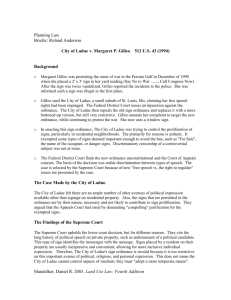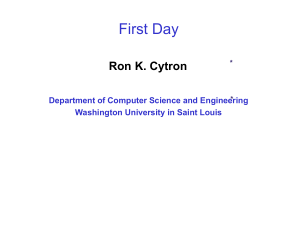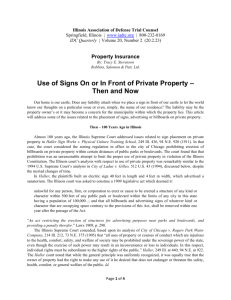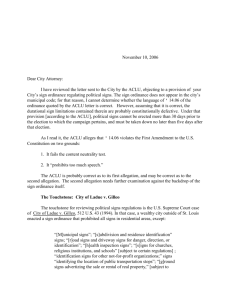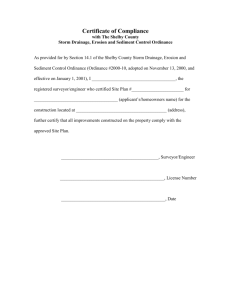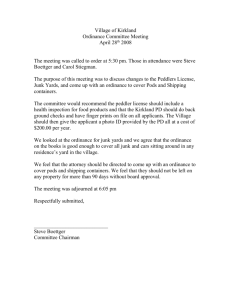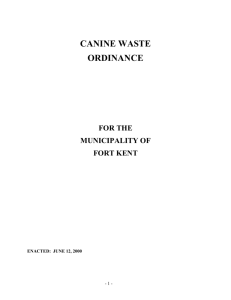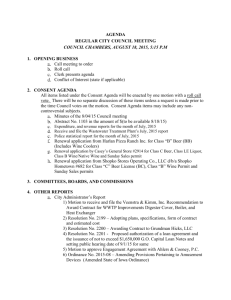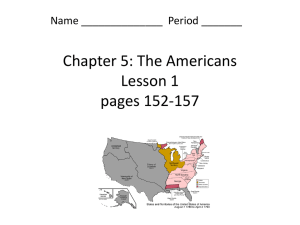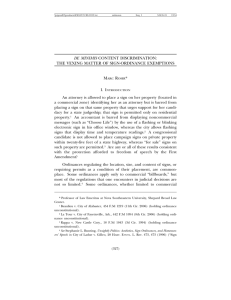Ladue v. Gilleo - Synopsis
advertisement
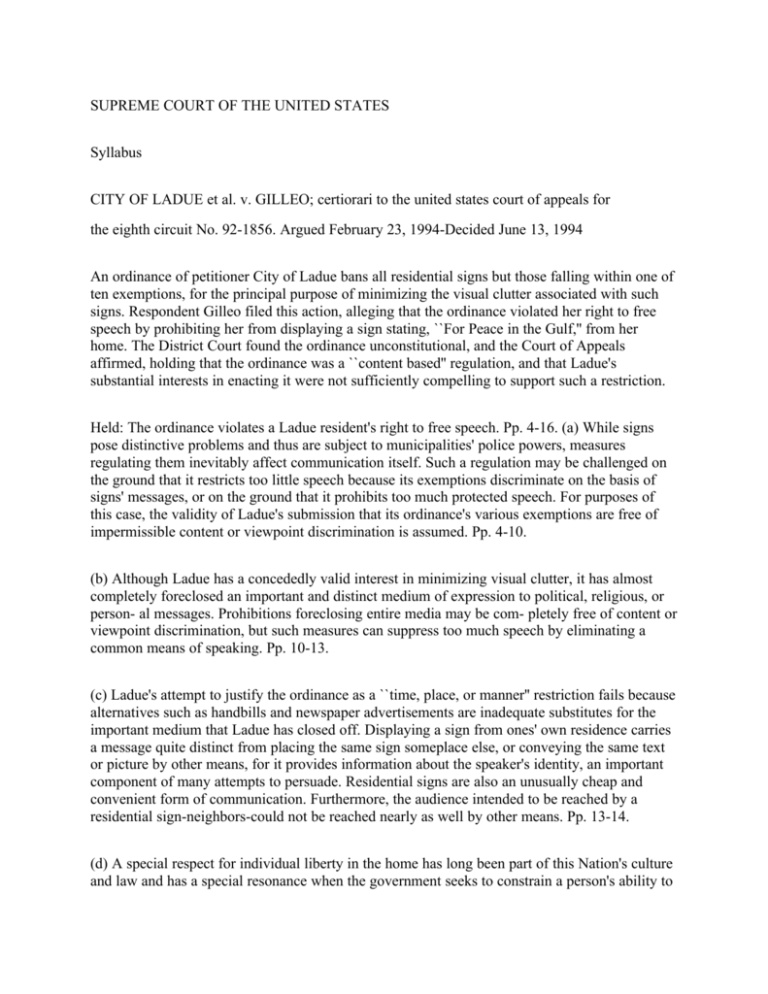
SUPREME COURT OF THE UNITED STATES Syllabus CITY OF LADUE et al. v. GILLEO; certiorari to the united states court of appeals for the eighth circuit No. 92-1856. Argued February 23, 1994-Decided June 13, 1994 An ordinance of petitioner City of Ladue bans all residential signs but those falling within one of ten exemptions, for the principal purpose of minimizing the visual clutter associated with such signs. Respondent Gilleo filed this action, alleging that the ordinance violated her right to free speech by prohibiting her from displaying a sign stating, ``For Peace in the Gulf,'' from her home. The District Court found the ordinance unconstitutional, and the Court of Appeals affirmed, holding that the ordinance was a ``content based'' regulation, and that Ladue's substantial interests in enacting it were not sufficiently compelling to support such a restriction. Held: The ordinance violates a Ladue resident's right to free speech. Pp. 4-16. (a) While signs pose distinctive problems and thus are subject to municipalities' police powers, measures regulating them inevitably affect communication itself. Such a regulation may be challenged on the ground that it restricts too little speech because its exemptions discriminate on the basis of signs' messages, or on the ground that it prohibits too much protected speech. For purposes of this case, the validity of Ladue's submission that its ordinance's various exemptions are free of impermissible content or viewpoint discrimination is assumed. Pp. 4-10. (b) Although Ladue has a concededly valid interest in minimizing visual clutter, it has almost completely foreclosed an important and distinct medium of expression to political, religious, or person- al messages. Prohibitions foreclosing entire media may be com- pletely free of content or viewpoint discrimination, but such measures can suppress too much speech by eliminating a common means of speaking. Pp. 10-13. (c) Ladue's attempt to justify the ordinance as a ``time, place, or manner'' restriction fails because alternatives such as handbills and newspaper advertisements are inadequate substitutes for the important medium that Ladue has closed off. Displaying a sign from ones' own residence carries a message quite distinct from placing the same sign someplace else, or conveying the same text or picture by other means, for it provides information about the speaker's identity, an important component of many attempts to persuade. Residential signs are also an unusually cheap and convenient form of communication. Furthermore, the audience intended to be reached by a residential sign-neighbors-could not be reached nearly as well by other means. Pp. 13-14. (d) A special respect for individual liberty in the home has long been part of this Nation's culture and law and has a special resonance when the government seeks to constrain a person's ability to speak there. The decision reached here does not leave Ladue powerless to address the ills that may be associated with residential signs. In addition, residents' self-interest in maintaining their own property values and preventing ``visual clutter'' in their yards and neighborhoods diminishes the danger of an ``un- limited'' proliferation of signs. Pp. 15-16. 986 F. 2d 1180, affirmed. Stevens, J., delivered the opinion for a unanimous Court. O'Con- nor, J., filed a concurring opinion.
